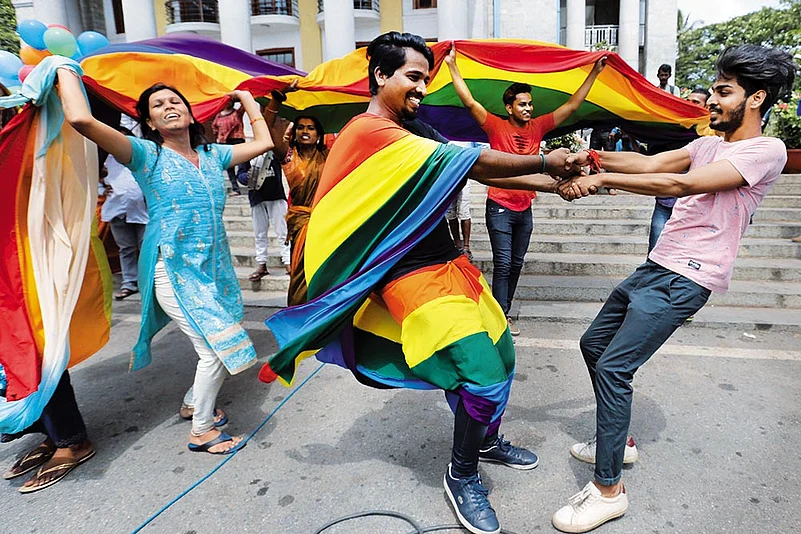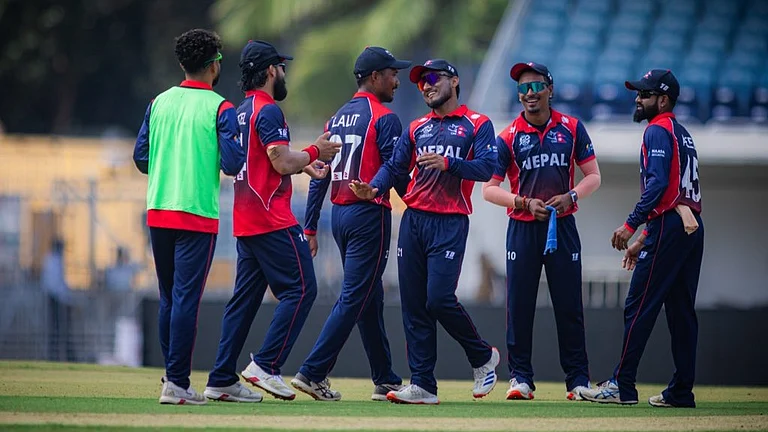Archaic Laws
- Section 497, IPC Only men are punished for sexual relations with a married woman
- Indian Prisons Act Male prisoners can be whipped on their buttocks up to 30 times as punishment for offences in prisons
- East Punjab Agricultural Pests, Diseases and Noxious Weeds Act 1949 Drumbeats can be used to summon men to deal with locusts and other agricultural pest; ignoring it leads to 10 days in prison
- Indian Telegraph Act, 1885 India stopped sending telegrams five years ago, yet the law on telegraphs exists, outlawing possession of telegraph wires
- Indian Treasure Trove Act, 1878 If you find buried treasure worth more than Rs 10, hand it over to the Queen of England or else you can be sentenced to a year in prison
- Indian Post Office Act, 1898 You can send ‘documents’ by private courier, but only India Post can deliver letters
- Indian Aircraft Act, 1934 Flying kites and balloons is exempted under the Aircraft Rules, otherwise one may need a permit since these are defined as ‘aircraft’
- Section 160 of the Representation of People Act, 1951 Not only can your car get requisitioned for poll duty, if you drive it yourself, you will get less than Rs 50 as refreshment allowance for a day
***
It’s 2018—more than 200 years since the first formal Constitution in the world recognising human rights was adopted, and 2,500 years since a king, Cyrus II, for the first time in recorded history freed slaves and gave his people the freedom to choose their religion. Back home, India celebrated its 71st Independence Day a few days ago, reaffirming its faith in everything enshrined in the Constitution, which guarantees certain basic rights to all its citizens. And yet, men continue to die here in pools of human excreta and sludge, which they have to clean manually for the convenience of others.
Last Sunday, five men died while cleaning a sewage tank in the basement of DLF Capital Greens, a high-rise in Delhi’s Moti Nagar locality. Elsewhere, a man was beaten to death for allegedly smuggling cattle. Not long ago, a court annulled the marriage of a woman who had embraced a religion she was not born into, because she was found to have been ‘indoctrinated’ and ‘programmed’ by the government of the day.
A century later, historians sitting in an archive might get a little nonplussed piecing together these floating flakes of information. And who knows the citizen, or the human, might still not be entirely free then.
Read Also: Section 377: It’s Still A Long Road Ahead
Aeons of civilisation have certainly brought us to a point where we have got much of our freedoms and rights legislated. But reality might still be a far cry from what the Constitution guarantees us. The individual’s fundamental rights are being compromised not just by other individuals, but also the government—and at times by the State itself and its laws. The right to equality was being denied until a few days ago by Section 377 of the Indian Penal Code that criminalised “unnatural sex” until the law was struck down by the Supreme Court. That it took a court to annul it rather than Parliament, some argue, speaks much about our polity and society. Others say the unease among certain quarters over decriminalisation of homosexuality tells us that people are still not evolved enough to accept that all human beings do not share the same sexual orientation, but are entitled to the same rights.
It’s not just about people with a different sexual orientation. Violations of people’s rights in different areas are becoming too flagrant to be missed today. The arrests of five rights activists and lawyers in August, following up on five similar arrests earlier in June, for alleged links with Maoists and involvement in a conspiracy to overthrow the government, had all the trappings of an attack on freedom of expression. It led the Supreme Court to note that dissent is the “safety valve of democracy”, a statement that was widely reported by the media and enthusiastically greeted by civil society. A press conference by the Maharashtra Police on the arrests earned it a rebuke from the Bombay High Court, which asked why they were doing so when the matter was still sub-judice.
Social activist Aruna Roy says the government wants to paralyse society by taking away the freedom of expression. “If it’s taken away, we can’t confront the government or question it about its failures. The danger lies in silence and anybody who can afford to be silent must realise it will lead to enslavement,” says Roy, who spearheaded the movement for the Right to Information before it was enacted into law in 2005. This year, incidentally, India is ranked 138th in the World Press Freedom index, having slipped five places, from 133rd in 2016.
Frequent incidents of lynching by vigilante mobs, sometimes with explicit patronage of lawmakers and the administration, also cast a shadow on the human rights situation in India. “Many of us seem to be fine with the idea of killing a criminal extrajudicially,” says Nalsar University of Law vice-chancellor Faizan Mustafa, who has written extensively on comparative human rights and constitutional law. “If we are moving headlong towards an instant justice sort of arrangement, we are violating all the laws that are part of the right to fair trial. In fact, the number of lynching cases only suggests that even the most fundamental right, the right to life, is not fully secured for all citizens. We should be alarmed.”
There have been other crimes, as gory and medieval as mob-lynching, which not just violate the right to life, but are also telling of the extent of disregard somebody can have for the dignity of fellow human beings. In Rajasthan’s Rajsamand, a man was axed to death and burnt, while the assailant got the act filmed—he later released a series of videos defending the act, invoking Hindu pride and expressing hatred against Muslims. The hate crime disturbingly reflects how disgracefully a human life can be brought to naught. So does the Kathua case in which an eight-year-old Bakarwal girl was drugged and raped for at least four days before being killed. And the honour killing of an inter-caste couple and their baby in Tiruchirappalli. And the numbing rape of Nirbhaya on the roads of the capital. And the crushing of three Dalit men under a tractor in Rajasthan’s Dangawas. And the tying of Farooq Ahmad Dar, a Kashmiri weaver who had gone out to vote, to a jeep bonnet by an army major as a human shield against stone-pelters in Kashmir’s Budgam. The list goes on.
The abuse of human dignity has also been layered. In a freewheeling conversation with Outlook, an entertainment professional from Srinagar speaks about paler violations. “Every night, while I am returning home from office, a policeman stops me. He shines a blazing torch in my face and does enquiries. It happens every day,” he says, and requests anonymity, “Rehne do yaar. Pareshaan karenge (Please don’t use my name. They’ll harass me later).” The exposure to police and armed forces on a regular basis, the sight of the omnipresent army, persistent questioning and occasional harassment, is how the dignity is methodically eroded in the Kashmir Valley. “The father is the authoritative figure in the family. You look up to him. When a policeman slaps him in front of the family, it is the most shocking thing. It causes irreparable damage to a father’s image of authority,” says the 26-year-old.
Laws such as the Armed Forces (Special Powers) Act (AFSPA), applicable in Jammu and Kashmir, Assam and parts of Manipur, have resulted in rampant allegations of human rights violations. According to home ministry data, there were 92 complaints against the Indian Army and paramilitary forces for violations in 2016 alone. “Violent insurgencies in various parts, whether Jammu and Kashmir, Assam or Manipur, or in the forests of central India by the Maoists, have led to human rights abuses both by government forces and the insurgent groups. But the failure of justice when there are violations by government forces is what perpetuates a cycle of violence,” says Meenakshi Ganguly, South Asia director at Human Rights Watch. “India needs an end to the culture of impunity for indiscriminate and excessive use of force against protesters, arbitrary detention, torture and extrajudicial killings.”
Read Also: Right To Freedom Of Expression
According to jurist Mustafa, sometimes it’s the law itself—especially exceptional laws such as Unlawful Activities (Prevention) Act and National Security Act—that compromises people’s rights, liberties and dignities. “These laws, if strictly scrutinised by a liberal court, may not be found constitutional. Look at the high rates of acquittal under the earlier anti-terror laws—Terrorist and Disruptive Activities (Prevention) Act and the Prevention of Terrorism Act. Innocents have languished in jails for years, even decades, only to be acquitted of all charges,” he says.
Other than these more conspicuous violations, there are routine infringements of the rights of people as Adivasis, women, consumers, workers, and rights in terms of privacy. Government agencies and tech giants are peeping into, recording and misusing the most personal data of people. Delayed appointments of information commissioners, and hesitant responses from departments are curtailing the right to information. The rights to food and education, although legislated, are far from reaching the intended scope. Wage inequality between men and women is also rampant, with studies suggesting close to 70 per cent women feel they have been victims of economic injustice.
Despite problems in the laws and their implementation, the Constitution seems to be a robustly positioned text, far progressive than we are as a society. Calling it an “excellent document”, Ashis Nandy, honorary fellow at the Centre for the Study of Developing Societies (CSDS), says a full-fledged leftist, or a classical liberal, or even an atheist, can say we have one of the finest Constitutions in the world. Roy says the framers of the Constitution were proud of Indian tradition, but not blind to its problems, and that’s why they equipped the Constitution with the wisdom to deal with many contradictions that would arise in the Indian socio-legal ecosystem. “The Constitution was framed with a full recognition of what India was really like, and also to forewarn ourselves about what we could or could not do in terms of our own public life as well as in terms of governance,” says the veteran activist.
The future, she thinks, will host the struggle to retain the Indian Constitution, with the preamble as it exists, and a secular India. Others feel freedom from police atrocities and the rights of refugees are what India needs the soonest to ensure its constitutional evolution is not delayed. In the ever more pervasive age of technology, internet, and perennial, all-encompassing documentation, the right to be left alone, the right to privacy, the right to be forgotten, which would involve erasing of defamatory information relating to the person from the internet, are also likely to become a growing part of the rights discourse.
By Salik Ahmad in Delhi


























